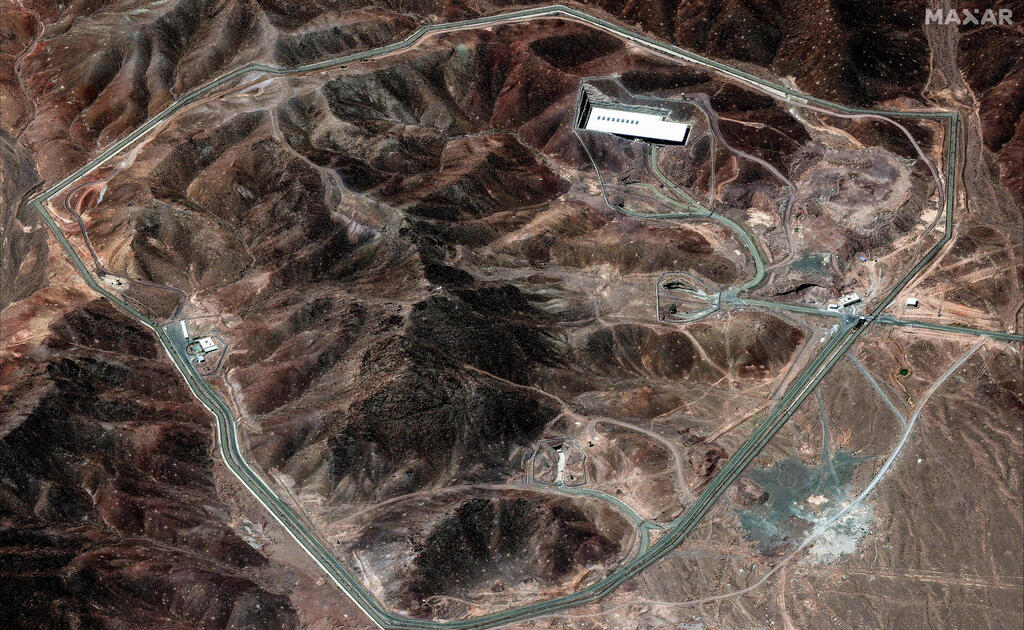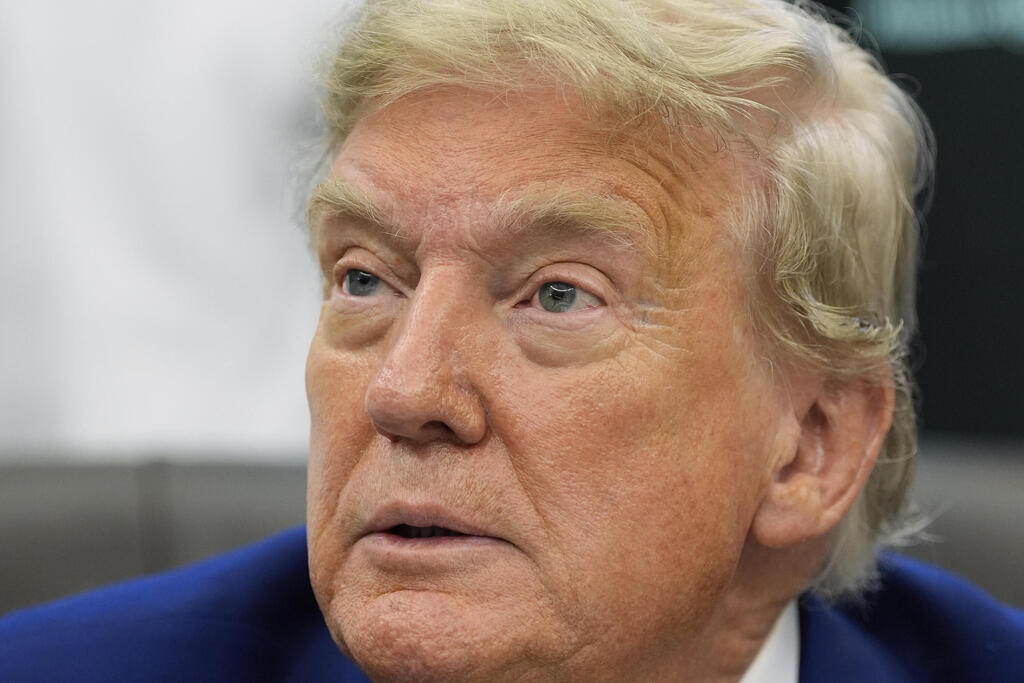Getting your Trinity Audio player ready...
U.S. President Donald Trump will decide within two weeks whether the United States will join Israel in its military campaign against Iran, White House Press Secretary Karoline Leavitt said Thursday.
Delivering what she described as a “message directly from the president,” Leavitt quoted Trump as saying, “based on the fact that there's a substantial chance of negotiations that may or may not take place with Iran in the near future, I will make my decision whether or not to go within the next two weeks."
Statement by White House Press Secretary Karoline Leavitt
(Video: Reuters)
Leavitt confirmed that diplomatic contacts between Washington and Tehran are ongoing. “We were engaged with six rounds of negotiations with them in both indirect and direct ways,” she said. She reiterated Trump’s long-held stance that Iran must not acquire nuclear weapons. “He's been unequivocally clear about this for decades, not just as president, not just as a presidential candidate, but also as a private citizen,” she said.
Leavitt added that Trump’s firm opposition to the 2015 nuclear agreement with Iran, brokered by then-president Barack Obama, reflected this core principle. “He's been very clear. Iran went for 60 days, when he gave them that 60-day warning without coming to the table, on day 61, Israel took action against Iran, and as I just told you, from the president directly, he will make a decision within two weeks," she said.
Asked what a renewed agreement with Iran must include, Leavitt replied: “No enrichment of uranium and Iran is absolutely not able to achieve a nuclear weapon. The president has been very clear about that. And the deal that special envoy [Steve] Witkoff proposed to the Iranians was both realistic and acceptable within its terms, and that's why the president sent that deal to them."
Responding to a question on intelligence sources behind Trump’s assertion that Iran is closer than ever to building a nuclear bomb, Leavitt said: “It is a fact, and the United States government maintains this fact that Iran has never been closer to obtaining a nuclear weapon."
In Israel, officials expressed concern that Trump may delay his decision, possibly for another one to two weeks. “The president isn’t under pressure—his country isn’t under missile fire,” an Israeli source said, while acknowledging that “Washington is doing 100% of what it can to assist us with intercepts.”
Meanwhile, Trump on Thursday denied a report in The Wall Street Journal that claimed he had approved a strike on Iran but paused it at the last moment to give Tehran one final chance to negotiate, saying the Wall Street Journal had "no idea" what he was intending to do.
3 View gallery


Iran's Fordow nuclear facility
(Photo: AFP PHOTO / Satellite image ©2025 Maxar Technologies)
U.S. special envoy Steve Witkoff and Iranian Foreign Minister Abbas Araghchi have spoken by phone several times since Israel began its strikes on Iran last week, in a bid to find a diplomatic end to the crisis, three diplomats told Reuters.
According to the diplomats, who asked not to be identified due to the sensitivity of the matter, Araghchi said Tehran would not return to negotiations unless Israel stopped the attacks, which began on June 13.
Get the Ynetnews app on your smartphone: Google Play: https://bit.ly/4eJ37pE | Apple App Store: https://bit.ly/3ZL7iNv
They said the talks included a brief discussion of a U.S. proposal given to Iran at the end of May that aims to create a regional consortium that would enrich uranium outside of Iran, an offer Tehran has so far rejected.
U.S. and Iranian officials did not immediately respond to a Reuters request for comment on the matter.
3 View gallery


US special envoy Steve Witkoff and Iranian Foreign Minister Abbas Araghchi
(Photo: REUTERS/Evelyn Hockstein/Pool, Amer HILABI/AFP, CameraObscura82/Shutterstock, Smolkov Vladislav/Shutterstock)
This week's phone discussions were the most substantive direct talks since the two began negotiations in April. On those occasions, in Oman and Italy, the two men exchanged brief words when they encountered each other after indirect talks were held.
A regional diplomat close to Tehran said Araghchi had told Witkoff that Tehran "could show flexibility in the nuclear issue" if Washington pressured Israel to end the war.
A European diplomat said: "Araghchi told Witkoff Iran was ready to come back to nuclear talks, but it could not if Israel continued its bombing."
Other than brief encounters after five rounds of indirect talks since April to discuss Iran's decades-old nuclear dispute, Araghchi and Witkoff had not previously held direct contacts.
A second regional diplomat who spoke to Reuters said, "the (first) call was initiated by Washington, which also proposed a new offer" to overcome the deadlock over clashing red lines.






